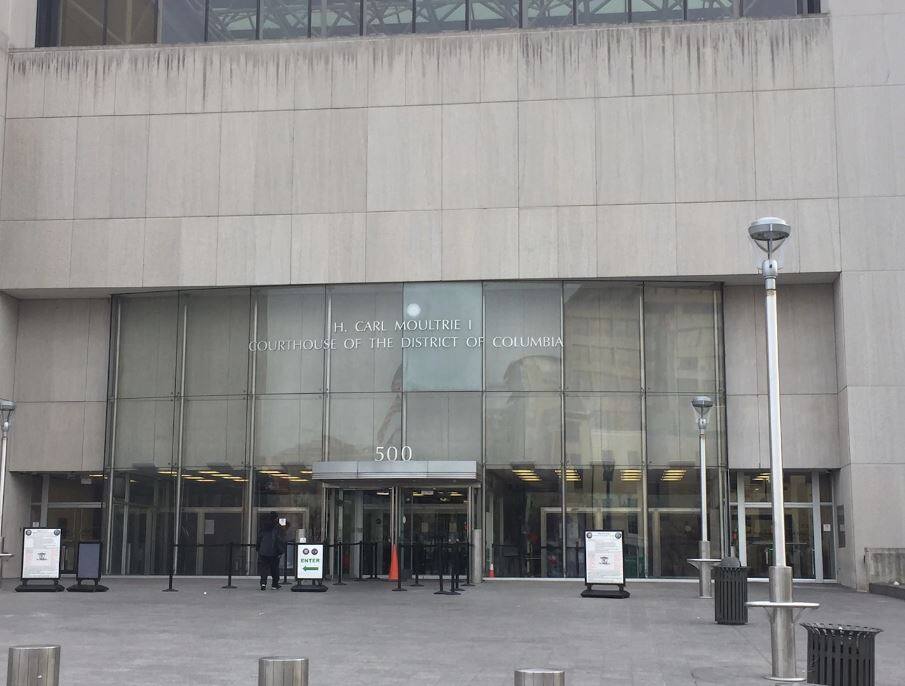Misdemeanor court has been closed for a year. Keep it that way.

When the pandemic threat ends, this policy should not. The U.S. attorney’s office should stop criminally prosecuting nonviolent misdemeanors.
Consider: Just days before the D.C. Superior Court announced it would close due to covid-19, 35 of the 74 people arrested on March 12, 2020, were accused of misdemeanors that did not involve violence. This is consistent with the usual ratio of nonviolent misdemeanors to other crimes. These misdemeanors involved drug possession, shoplifting and destruction of property. The most frequent charge was unlawful entry (“trespass” in most jurisdictions).
By and large, these are crimes of poverty. They are not dangerous or sophisticated crimes. Drug possession reflects drug use and, often, drug dependency. Most shoplifting cases prosecuted in D.C. are crimes of subsistence. Destruction of property is usually the result of a momentary loss of temper, patience or resources. Unlawful entry is the classic charge brought against homeless people for overstaying their welcome at fast-food restaurants, cafes, gas stations and corner stores. Faced with few options, fellow citizens who are homeless sometimes return to places from which they’ve been “barred” seeking warmth and shelter.
We direct the criminal defense clinics at Georgetown University Law Center, where third-year law students represent indigent people accused of misdemeanors. Over the years, we have watched in horror as poor, desperate clients were prosecuted for such crimes as stealing a burrito from a 7-Eleven or a pair of warm gloves from Macy’s, or begging for a free cup of coffee at Starbucks and not leaving when told to.
The data is clear: An overwhelming number of misdemeanor prosecutions in the District have long been of poor people. There is also a disproportionate impact on Black and Brown people. Many offenses, such as solicitation or drug possession, are crimes that are just as likely to be committed by White people, but historically D.C. police have focused their resources on policing communities of color.
Those in misdemeanor court face serious consequences even for petty crimes. A conviction can result in loss of housing, income, legal immigration status and more. There are the financial and emotional costs of weekly pretrial supervision and frequent court appearances, as well as more supervision and appearances if the person is sentenced to probation or a combination of jail and probation. The ripple effect of the negative consequences can impact entire communities — through loss of family, generational wealth, the family home, self-worth. And for what? Prosecuting these nonviolent misdemeanors does little to advance public safety. Instead, these petty-crime prosecutions create resentment, fear and a sense of the law’s illegitimacy in over-policed neighborhoods.
D.C. is not the only place that has taken this approach over the past year. Jurisdictions across the country — including Baltimore, Brooklyn, Cleveland, Los Angeles, San Francisco and Jacksonville, Fla. — have at times curtailed misdemeanor prosecutions or released a broad swath of nonviolent pretrial detainees in response to the covid-19 crisis. Meanwhile, Chicago has made few changes in prosecution and detention during the pandemic, and the Cook County Jail has had one of the single largest concentrations of coronavirus cases in the nation.
These prosecutions also cost significant amounts of money. The millions of dollars that the D.C. police spend annually on overtime includes pay for officers to sit in courthouse anterooms waiting to testify or transport evidence. Courtroom clerks, court reporters, interpreters, investigators, defense attorneys, prosecutors and judges all get paid to keep this system going. Taxpayers unwittingly spend hundreds of thousands of dollars to prosecute crimes of poverty rather than addressing the underlying conditions that drive people to commit these offenses. This money would be much better spent providing services outside of the criminal legal system.
Misdemeanor court has been closed for a year. We should keep it that way. We ask the new U.S. attorney for the District of Columbia to pause and consider the pros and cons. The benefits argue for no longer bringing nonviolent misdemeanor cases. Little good comes from these prosecutions — yet they inflict enormous harms. A permanent, post-covid change in this policy would make a significant, positive difference in D.C. — and could serve as a model for the rest of the country.
Read more:






